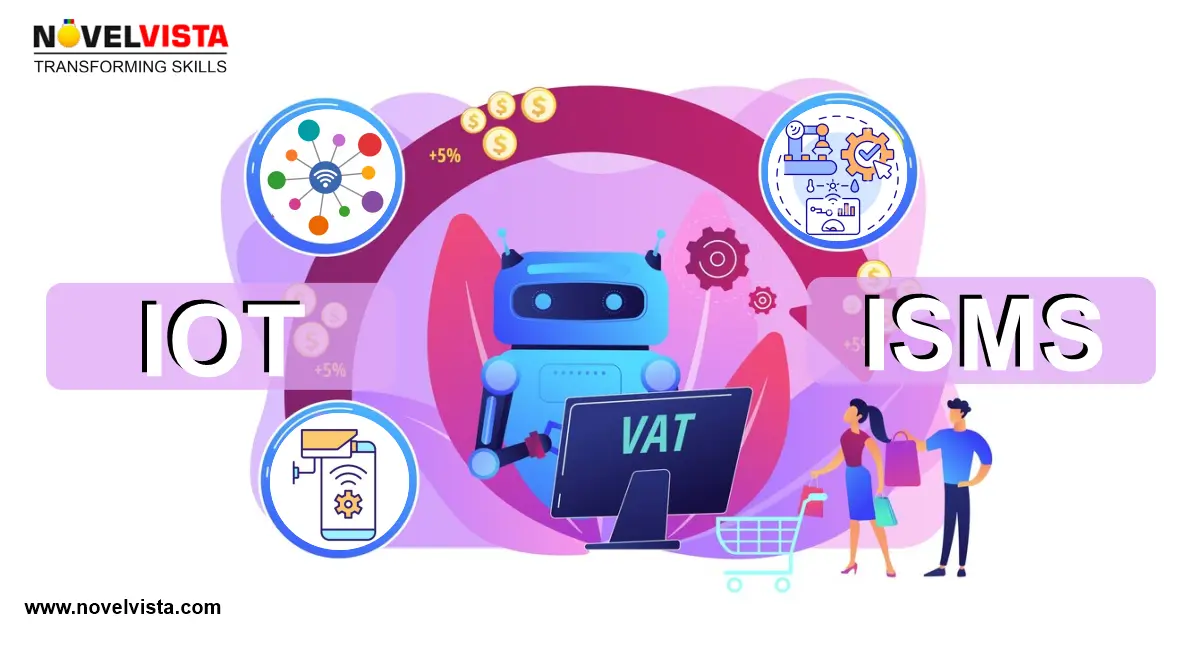Information Security Management Systems (ISMS)are important for protecting companies from cyber-attacks. This assures the privacy and accessibility of sensitive information. As technology is growing rapidly, ISMS needs to widen itself in order to keep up to date with the emerging innovations. As new threats and cyberattacks emerge every day, the old way of protecting data is no longer sufficient in today's digital world. To maintain a strong safety framework, organizations must adopt their ISMS to welcome new technologies, emphasize user experience, and prioritize cybersecurity measures. This blog looks at new technologies and trends that are shaping the future of Information Security Management Systems (ISMS). It offers ideas on how companies can stay ahead and keep their assets safe in a fast changing business world.
Artificial intelligence (AI) is changing how organizations handle information security. AI-powered systems can now detect and respond to attacks in real-time, reducing the workload for security professionals by automating many tasks. Machine Learning (ML) plays a key role by analyzing large amounts of data, spotting patterns, and predicting potential security threats. This allows organizations to act before issues arise. Additionally, AI can help automate compliance with various regulations, ensuring companies follow security rules without needing manual input. As AI continues to develop, it will become an essential tool for information security, helping companies stay ahead of cybercriminals and protect their important assets.
The development of cloud-based Information Security Management Systems (ISMS) has changed the way businesses manage their security frameworks. However, this change brings new risks that are particular to cloud environments. One important issue is a misunderstanding of the shared responsibility paradigm, which defines the security requirements of both the cloud provider and the user. This causes gaps in security practices more than once, exposing firms to dangers such as data breaches and illegal access. To overcome these risks, businesses should use cloud security best practices. This includes putting in place effective Identity and Access Management (IAM) techniques to ensure that sensitive data is only accessed by authorized individuals.
Regularly assessing and updating security measures is also required to keep up with new threats. Moreover, firms should promote a security-conscious culture by teaching employees about the dangers connected with cloud services and the need for regulatory compliance. Organizations may effectively secure their cloud infrastructures and improve their overall ISMS by proactively addressing these concerns. AchievingISO 27001 certificationdemonstrates that an organization is taking proactive steps to safeguard its information and is compliant with global security standards.
The Zero Trust Architecture (ZTA) is a new protection solution based on the notion of "never trust, always verify.." trusted, regardless of whether they are on or off the network. Instead, all access requests must be validated and permitted using stringent security checks.
Zero Trust's fundamental concepts include:
To achieve Zero Trust in an Information Security Management System, businesses should begin with Identity Protection. Secure user identities by using robust authentication mechanisms, such as multi-factor authentication.
Blockchain technology can transform Information Security Management Systems (ISMS) by establishing a safe and transparent platform for data management and transactions. Here is how blockchain can improve ISMS.
Blockchain records transactions in a decentralized network. This makes it more difficult for hackers to modify or tamper with the sensitive information of any individual.Once a block of information is brought to the blockchain, it cannot be updated or deleted without network consent. This ensures the security and confidentiality of critical information saved in the ISMS.
Blockchain automates the system of engaging in safe online transactions with the use of smart contracts. Smart contracts are computer programs that execute a settlement's provisions automatically while designated conditions are satisfied.This removes the need for middlemen and lessens the threat of human blunders, increasing the general protection of ISMS transactions.
Blockchain increases transparency and dependence in ISMS by letting users view and trace the whole transaction history, including transaction details, parties involved, and timestamps. This level of openness allows for the discovery of fraudulent activity and ensures that all ISMS actions are traceable and accountable.

Securing the Internet of Things (IoT) within Information Security Management Systems (ISMS) is critical as more gadgets connect to the Internet, resulting in new vulnerabilities. Organizations must address these risks by deploying robust security solutions that are suited to both industrial and consumer contexts. This involves making sure that all IoT devices are properly verified, updated regularly, and monitored for unexpected activity.To effectively manage IoT security, firms should implement governance measures such as defining explicit device management policies, conducting frequent security audits, and providing employees with training on IoT security best practices. Organizations can improve network security by incorporating these tactics into their ISMS.
Auditing and certification for Information Security Management Systems (ISMS) are rapidly changing to keep up with new technology and growing security concerns. Automation is key to this shift, speeding up audits and making them more efficient by using systems that can analyze large amounts of data and quickly identify risks. In the future, businesses will need to prepare for trends like real-time audits and the use of advanced technology to ensure their ISMS stays effective and meets the latest standards.By embracing these changes, companies can enhance their information security and build greater trust with stakeholders.
As we follow the changing environment of Information Security Management Systems (ISMS), it is critical to recognize major trends such as the integration of Artificial Intelligence, the rise of Zero Trust Architecture, and the significance of IoT security. To future-proof an ISMS, organizations should invest strategically in these emerging technologies and implement best practices such as continuous monitoring and employee training. Businesses can effectively manage risks and improve their security posture by remaining proactive and adaptable. Looking ahead, the advancement of ISMS will not only protect sensitive information but will also promote a security-conscious culture that empowers every individual within the firm. Are you prepared to take the next step in securing your information landscape?
Confused about our certifications?
Let Our Advisor Guide You